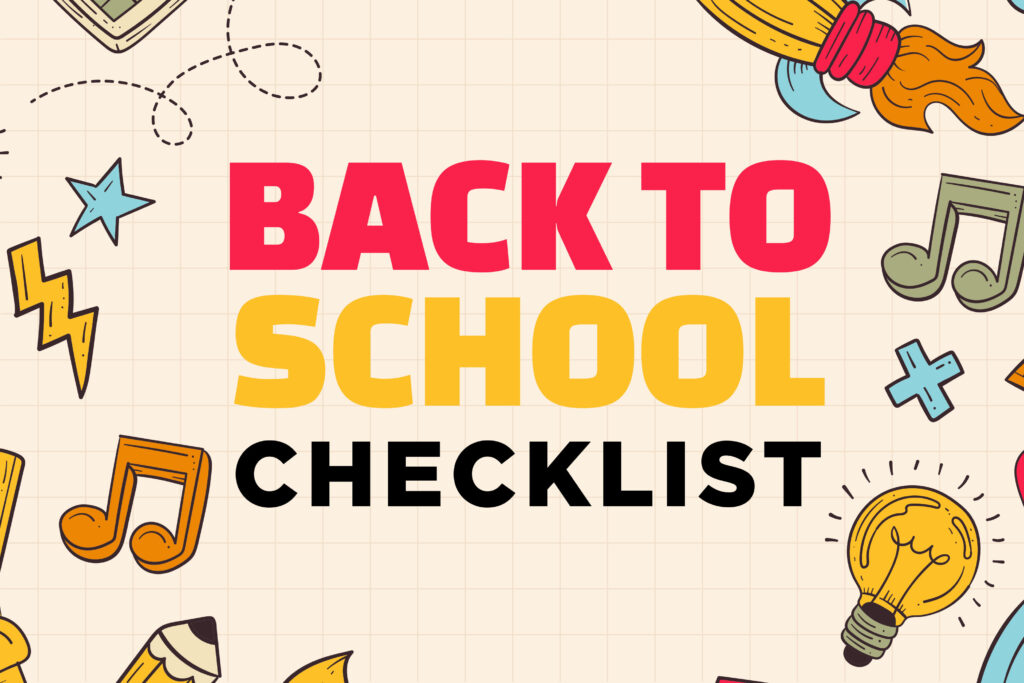W hen it comes to the first day of school, kids — and parents — may be excited and a bit nervous. Anxious feelings are normal and expected during times of transition or change. This is especially true for children and teens going back to school, or for first-timers starting kindergarten.
hen it comes to the first day of school, kids — and parents — may be excited and a bit nervous. Anxious feelings are normal and expected during times of transition or change. This is especially true for children and teens going back to school, or for first-timers starting kindergarten.
This transition can be stressful and disruptive for the entire family! Prior to the first day of school, your anxious child may cling, cry, have temper tantrums, have trouble sleeping, complain of headaches or stomach pains, withdraw, and become sullen or irritable.
Here are some tips for helping ease the stress of a new school year and starting on a positive note:
1. Reassure Your Child
- Listen to and acknowledge your child’s feelings and demonstrate confidence that they can handle the situation.
- Encourage your children to talk openly with you and with teachers about concerns or worries they may have.
2. Point Out the Positives
- Starting a new school year can be fun. Your child will see old friends and meet new ones.
- The first week of school offers a chance to learn about new things and pursue interests. Reinforce the fun and excitement of learning with your child.
3. Prepare Ahead and Start a Routine
- Begin preparing your child for the upcoming school year by establishing or getting into back-to-school routines a few days before school starts.
- Have your child pick out the clothes they plan to wear to school the next day.
- Encourage everyone in the house to go to bed early and get up 15 to 30 minutes earlier so they’re not rushing around in the morning.
- Allow enough time for a good breakfast, and make arrangements for your child’s lunch.
- During the first week of school, find out if any additional materials are requested (pencils, folders, etc.), and remember that your school, local nonprofit groups, and PTAs often can help with providing school supplies.
4. Encourage Safe Traveling to and from School
- Find another child in the neighborhood with whom your youngster can walk or bike to school, or ride with on the bus. Briefly review the basics of safe walking and biking.
- If you feel it is appropriate, drive your child (or walk with them) to school and pick them up on the first day.
- Take a tour of the school before the school year starts so your child is familiar with where things are and how to find their way around.
5. Plan for Special Needs
- If your child requires medication, treatment, or has special needs, talk to the school administrative staff. Then, talk to your child about how those needs will be handled at school (what time to go to the office for medication or what foods in the cafeteria to avoid, etc.).
6. Make Your Child Feel Comfortable
- If your child tends to have trouble with new social situations, arrange for playdates with some new classmates before school begins.
- For older children and teens, make sure your child attends any summer or before school orientations that will allow them to meet and get to know other students.
7. Prepare for Emergency Situations
- Discuss what your child should do if you are late picking them up, or if no one is at the house when they arrive home.
- Talk about what your child should do if they feel picked on while at recess. Having a plan will help minimize panic and stress.
Starting school is an exciting time filled with opportunities for growth and learning. By preparing ahead and offering reassurance, you can help make the transition smoother for your child and the entire family.
